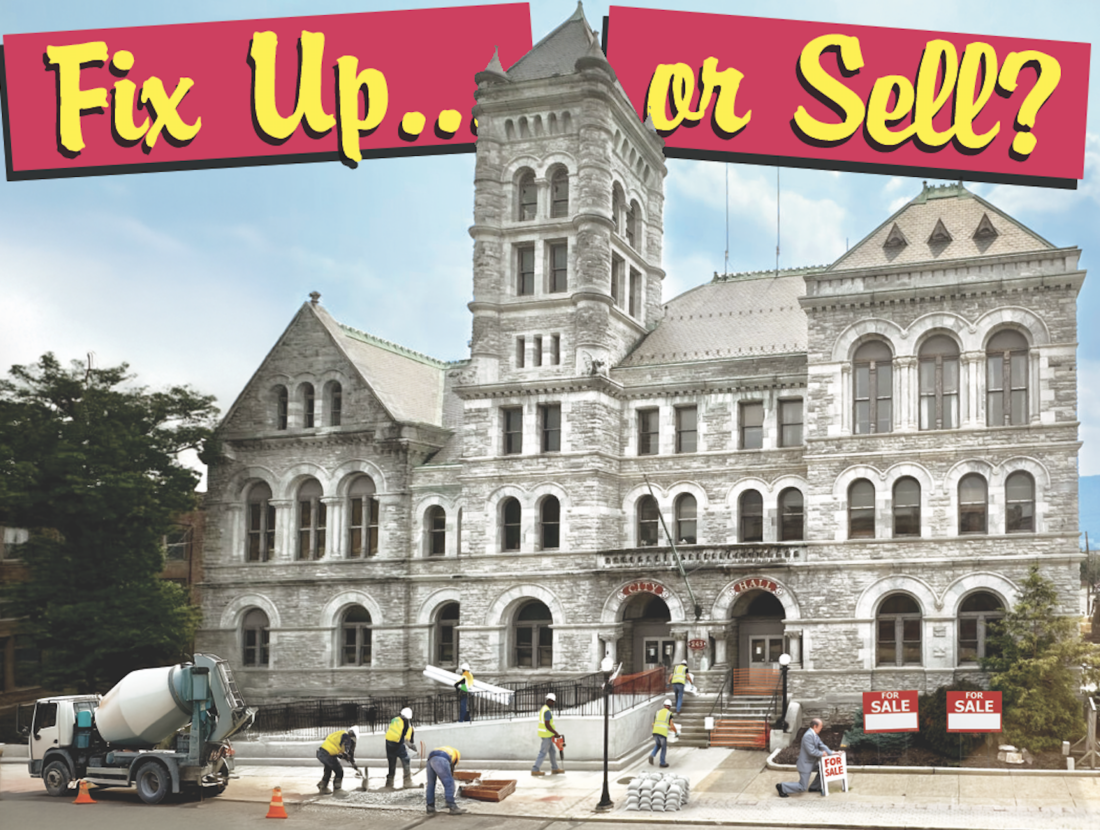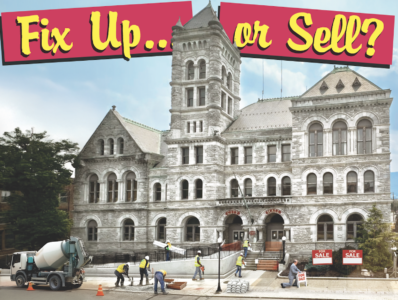Fix up…or sell? Consultant offers observations on state of City Hall building

The saga of what should be next for the condemned City Hall was discussed by a leader in Public Financial Management, a Philadelphia-based consulting firm working on behalf of the City of Williamsport. The historic former post office built in 1891 remains unused by the public for over three years.
PFM is engaged with the city’s strategic management planning process grant process, paid for by 90% from the state Department of Community and Economic Development. It has determined the city’s trajectory is looking at a $5.1 million budget deficit in 2026 if it does nothing to correct its path.
“What about selling City Hall?” asked Gordon Mann, managing director, PFM, who met recently with council and will provide more ideas for its members to ponder at a meeting on Oct. 16.
PFM is keenly aware of a developer’s offer to purchase the property at 245 W. Fourth St.
Developer John Basalyga offered $555,500 to buy the building, converting the upper floors into market-rate apartments. A plan was presented to perhaps create an event space or small cafe in the lower level.
As he put it, “Liven up the building and bring more foot traffic downtown.”
“Not on the list for us from a revenue-closing perspective,” Mann said of the city selling the building. “But it is on the list from a different perspective.”
“The city has plenty of ways it can think about the building, “probably most of them are running through your head right now,” Mann said. He added how they can be from a historical preservation perspective, from an operations perspective, and from a community development perspective. “I come from Public Financial Management – so you can guess which perspective I am going to show,” he said.
“I would not sell City Hall and generate the number that we’ve seen that is around $500,000 and try and close my deficit that way,” he said. “I think selling that asset for $500,000 and using it to keep your lights on for a month is a pretty unsatisfactory use of that resource, right?” he asked.
Conversely, he said, he would not hold onto the building.
It costs the city money from a maintenance perspective, he added. It costs money from a capital perspective if the roof falls in or 10 other things happen to it,” he said.
Additionally, it is not a well utilized resource, he noted.
PFM’s manager urged the city not to sell it, or not to knock it down and turn it into a parking lot. Nor does PFM wish for the city to make it into a type of convenience store.
“But if there is a way for you to thread the needle, to put this back into productive use, to maintain its historical value and to shed the expenditure liability, which is really what I am focused on from a financial perspective, that would be to me … from a financial perspective … very, very attractive.”
As for the police, the company is also keenly aware that it is operating in facilities, some of which are in dire need of renovation. He noted, however, that while capital (cash) can purchase police vehicles – it will not buy a building. That, he said, will require borrowing, and the city needs to get to a financial point where it can think about going into the market for that.



